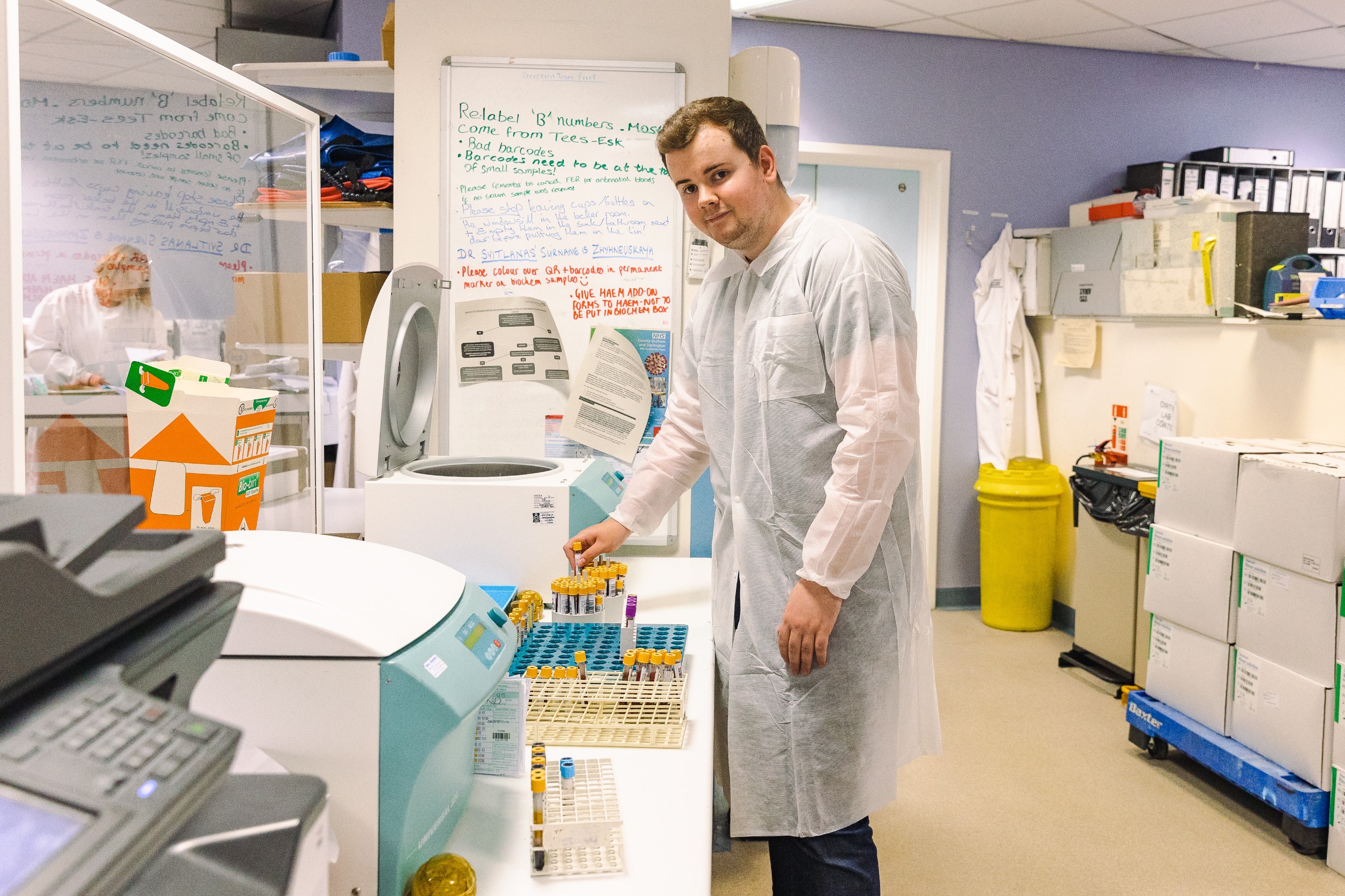
Clinical Biochemistry
Point-of-care testing (POCT) is a form of testing in which the analysis is carried out at the point where healthcare is provided, close or near to the patient, in various clinical departments. The key objective of POCT is to provide diagnostic results more quickly, facilitating faster clinical decision-making and improved patient outcomes. The Point of Care Testing Department is based within Pathology department DMH and operates across all CDDFT sites. The POCT team supports all departments that use POCT equipment across the trusts and beyond, including GP surgeries and Community Hospitals
Speed of diagnosis and treatment: POCT testing is very efficient, as the test is performed at the bedside or in close proximity to where the patient is being treated. This means that the treating clinician is able to see the results quickly and make rapid decisions about patient care.
The process is also more efficient for clinicians as, due to the speed of testing, they do not need to re-familiarise themselves with each case when test results come back.
Expanded testing capabilities: POCT means that laboratory testing can be provided in a wide variety of settings in both primary and secondary care.
Specimen stability and ease of handling: POCT reduces the risk of sample deterioration, as the tests are performed rapidly once the sample has been taken.
Portable devices: The portable size of POCT devices means that less space is needed for operation and storage. It also means that testing can be carried out in a wide variety of locations that would previously have not been possible. POCT can be flexible to meet the diversity of medical needs.
Improved patient outcomes and satisfaction: The immediate availability of test results means that patients can be diagnosed more effectively and can be moved through the system faster. This allows more patients to be treated in a shorter timeframe.
Economic and operational outcomes: The use of POCT can result in:
What POCT can offer
Contact us
If you want to find out more about the POCT solutions that our team can offer you, or any queries regarding training, password updates or POCT analysers you can contact:
Email: cddft.
POCT consumables can be obtained from pathology reception at UHND, DMH and BAH. Order forms must be fully completed, including ward name and cost centre number (not branch number which starts with CD) request for orders should be within the hours of 9am - 4pm, Monday to Friday.
Point of Care competency documents are listed below, please contact the team once completed.